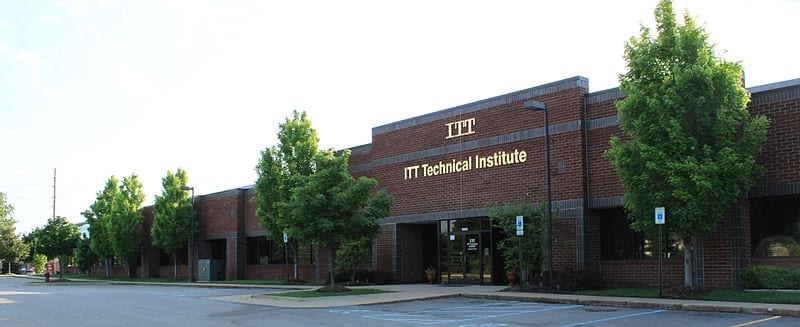
Courtesy of Dwight Burdette, Wikimedia
5/13/2015
In what may be a harbinger of the impending collapse of the large-scale, for-profit, college industry, two executives from ITT Educational Services as well as the company itself are facing charges of fraud from the Security and Exchange Commission (SEC). On Tuesday, the Commission accused Chief Executive Officer, Kevin Modany, and Chief Financial Officer, Daniel Fitzpatrick of misleading investors about the poor performance of two private student loan programs. Both men have vehemently denied the charges even though the company is facing another lawsuit, filed in 2014 by the Consumer Financial Protection Bureau (CFPB), accusing it of using predatory lending practices to entice borrowers who were likely to default. Modany, who originally announced his February, 2015 resignation after the CFPB lawsuit was filed, remains at the helm while Fitzpatrick has previously announced that he will retire this fall. Moreover, the findings of the SEC investigation show the shaky financial ground on which the Indiana-based college system finds itself. This follows the abrupt closure and bankruptcy last month of the nearly 80,000-student Corinthian Colleges system, which includes Everest Institute, after being fined $30 million by the Department of Education for lying about job placement data, doing so amid financial distress.
The SEC claims that Modany and Fitzpatrick underwent a complicated scheme to hide the company’s liability from a large amount of defaulted private loans. The issue stems from two private loan programs, PEAKS and CUSO, which provide funding for students based on ITT’s guarantee that they will pay for loans that were defaulted upon. By 2012, however, the rate of defaults had left ITT owing banks over $100 million. Instead of disclosing the obligation to investors and company auditors, the executives are accused of using deceptive tactics to mislead them. The specific list of complaints, borrowed from The Indianapolis Star, reads like this:
• Without disclosing it, ITT made payments on delinquent student loans to keep them from defaulting and triggering guarantee payments.
• ITT framed its anticipated guarantee payments against projections of future recoveries — creating a short-term cash crunch — but it didn’t disclose that approach.
• ITT didn’t consolidate one of its loan programs into its financial statements, even though it controlled the loan program’s economic performance.
• ITT “misled and withheld significant information” from its auditor.
Calling it “a sophisticated scheme designed to mislead investors,” SEC Enforcement Division director, Andrew Ceresney, notes that the company is “highly dependent on a steady flow of students capable of paying its fees.” ITT Educational Services has lost over 90 percent of its share value since last year’s CFPB suit, and it lost 43 percent in Tuesday trading, in wake of the SEC charges. With over 55,000 students and 130 campuses, it remains to be seen if ITT will follow Corinthian into a financial free-fall, jeopardizing the fates and academic careers of thousands. It also leads to two additional questions. First, is the business model of a large-scale for-profit college even viable without being propped up, and essentially underwritten by the government? Second, assuming that the government’s answer is to the first question is yes, is the recent federal scrutiny a preventative effort by the government to abolish this potentially risky sector? The aftermath of the charges for ITT may be a telling sign for both of these questions; if they survive then maybe not. If they fail, however, it may lend much credence to the theory.
Sources:
Consumerist – Ashlee Kieler
Indianapolis Star – Stephanie Wang
The National Law Journal – Jenna Greene


Join the conversation!